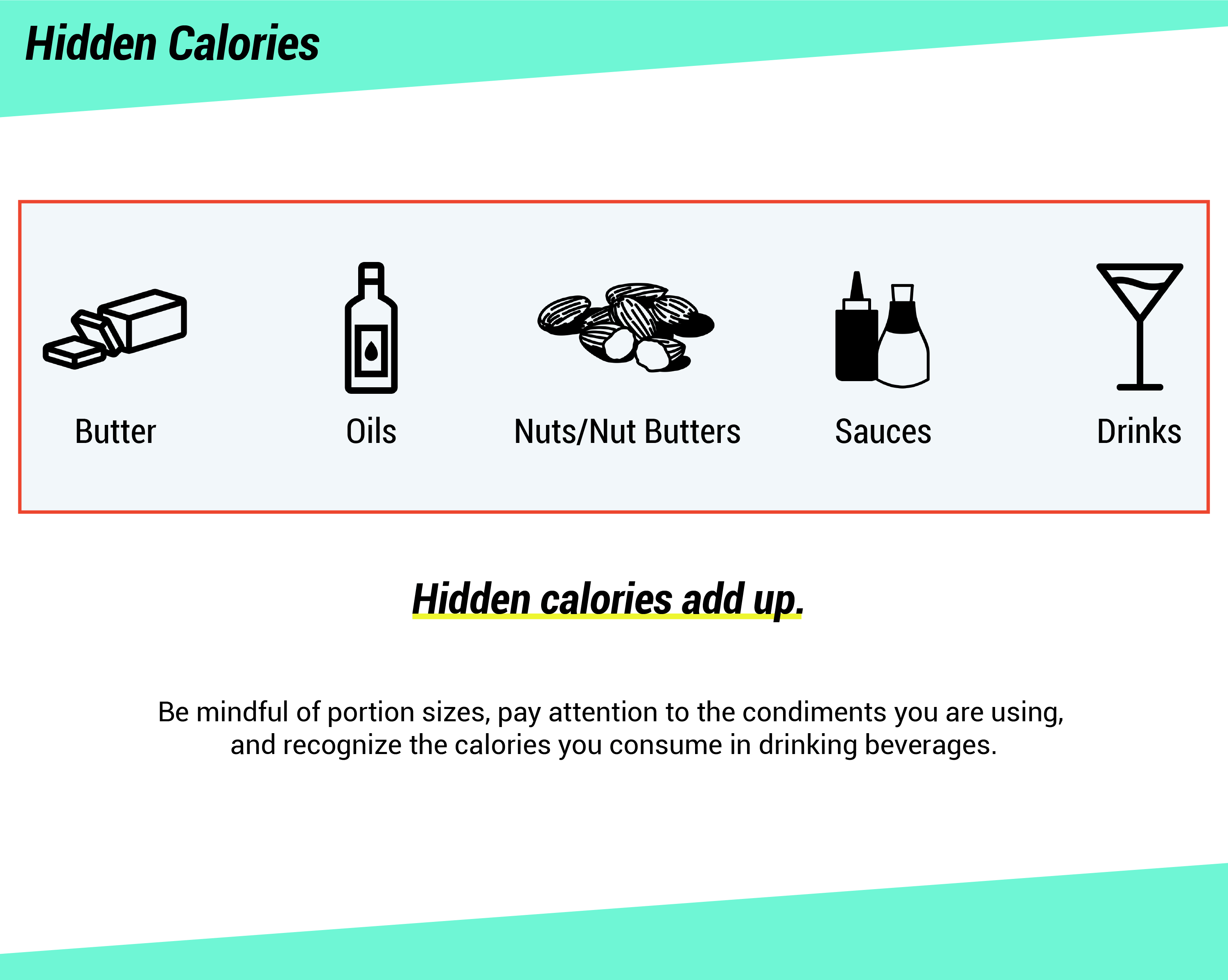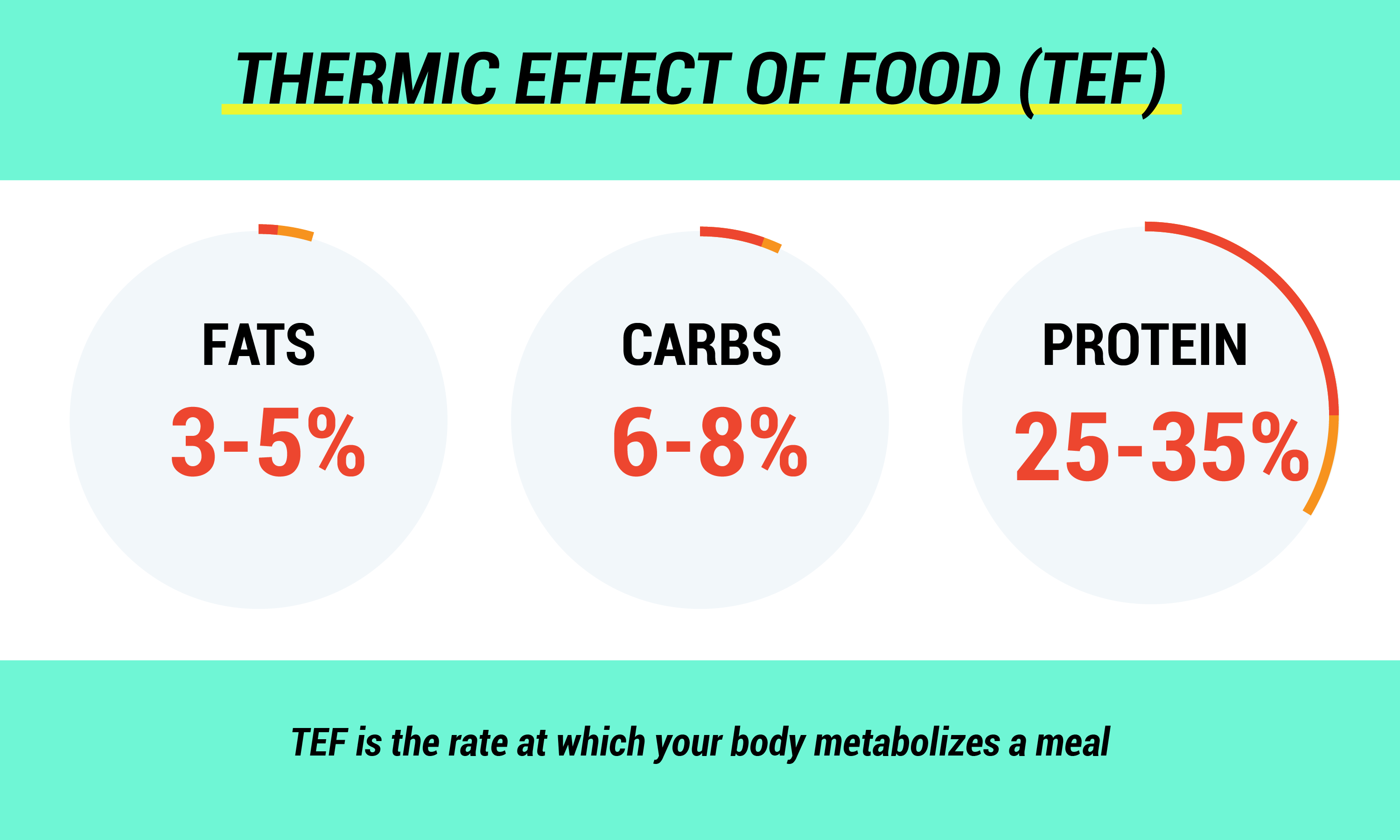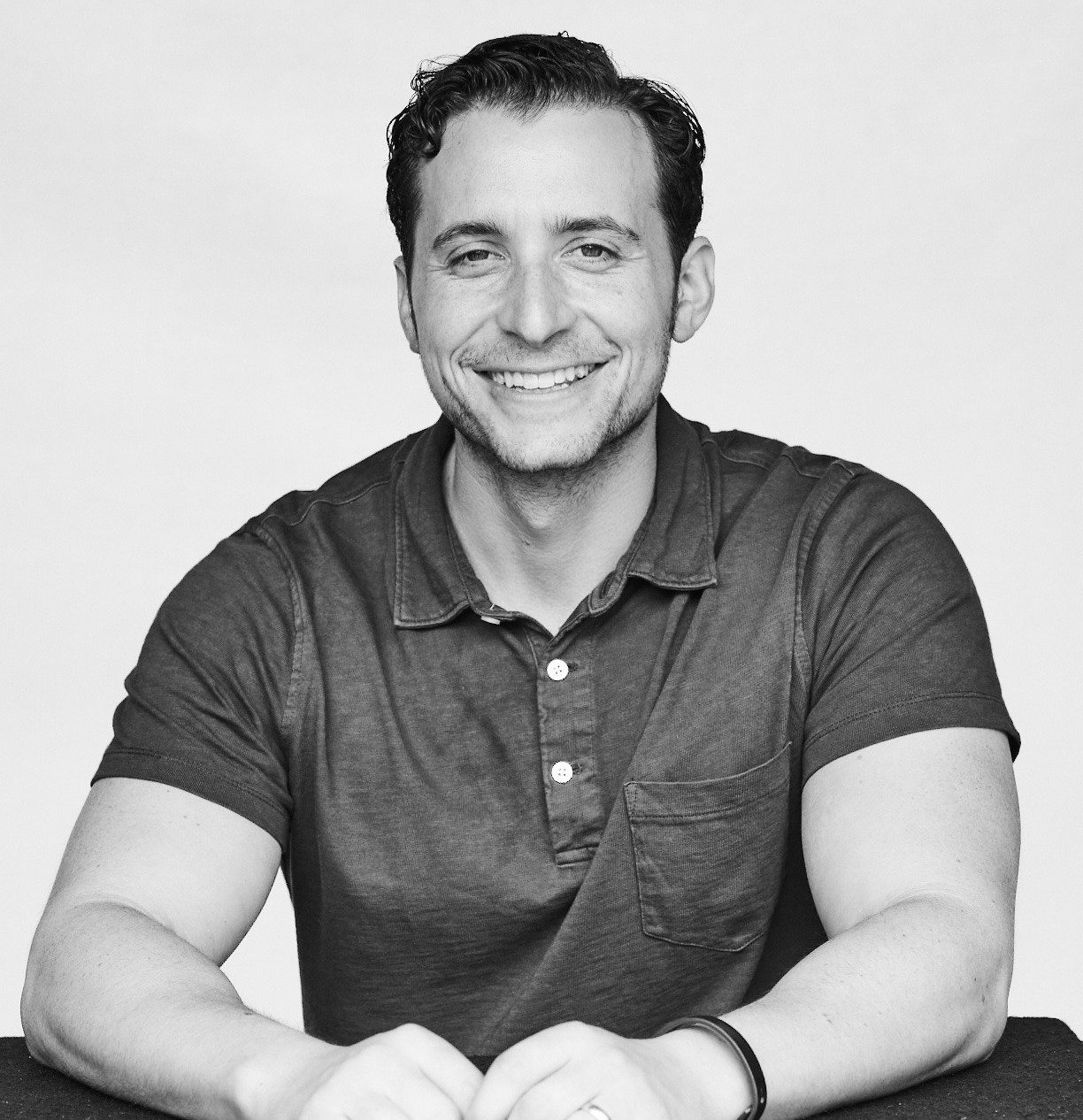There’s a myth about weight loss and “starvation mode” that has done so much harm over the years. Even if you read one sentence and leave this article, make sure you know the following:
You will not gain weight from eating too few calories.
There are many reasons why it can seem like under-eating can lead to weight gain. But, science has shown over and over again that this isn’t physiologically possible.
So, what’s happening with all the low-calorie diets that don’t seem to ever lead to more weight loss, and, too often, cause weight gain?
There are 3 primary reasons that create diet deception. But, first, it’s important how dieting sets up you to eat more than you think.
Table of Contents
The Hardest Part of Dieting
One of the hardest parts of dieting is that as you lose weight your body makes it easier to gain back. That’s because hormone levels change (particularly leptin), and that manipulates your hunger. The more you lose, the hungrier you become.
This matters because hunger can work in subtle ways. And, when your brain is pushing you to eat a little more here and there (especially if you’re exercising and rationalizing the ability to eat a few extra calories), it’s very easy to eat more than you think (more on this in a moment).
And, this becomes even more complicated when you consider that your body likely has a “set point.” This weight where your body likes to settle, and changing out of that set point is difficult when your body will almost force you to try and stick at that weight.
When you combine these two factors (your brain wanting more food and your body wanting to stick at a certain weight), weight loss quickly becomes a frustrating process for most people.
Once your frustration kicks in, you might even try to fight your body and win the war on weight loss by reducing calories again to make the scale drop.
And what happens? The scale doesn’t move or you appear to be gaining weight.
It’s enough to make you feel like your body must be broken. Or, maybe you wonder if it’s gluten…or dairy…or artificial sweeteners that are making you fat. So, you start restricting foods left and right, only to become more miserable.
While your frustration is real, rest assured your body is not broken, and artificial sweeteners or dairy are likely not the problems.
3 Reasons You Gain Weight (When You Least Expect It)
In our experience with online coaching clients, we’ve seen everything. And, when it comes to weight loss, there are three common reasons you might continue to struggle with weight loss, even if it seems like you’re doing everything right.
All of the reasons, ultimately, are linked to how much you’re eating. While all calories are not equal, calories-in and calories-out (also known as energy balance) is still the main mechanism that determines weight loss and gains.
As we already mentioned, you can’t under-eat your way to weight gain. But, you can appear to be under-eating and still gaining weight.
To make your life easier, we want to make sure you can easily identify all of the sneaky ways you can be tricked into following a diet that only leads to added frustration and a scale that won’t move.
Foods With Hidden Calories
Whether you’re a dieting pro or don’t know the difference between a carbohydrate and protein, hidden calories suck and they are everywhere.
A perfect example is the oils you add to cooking and salads. Most of us don’t realize just how small a tablespoon really is, and how something so simple can add hundreds or thousands of “stealthy” calories to your diet.
It’s frustratingly simple for hidden calories to pile up quickly day-over-day, and week-over-week, and that’s all it takes to keep you on a plateau or even gain weight, despite your best efforts.
Rather than worrying about counting calories, it’s important to easily recognize where most hidden calories are typically found.
See the graphic below, so you can think twice when you eat. What makes all of these hidden-calorie foods so difficult is that they are calorically dense. That means, even if they are healthy for you (which several of them are), just a small serving packs a big punch of calories, which is why it’s so simple to eat much more than you thought.

The 2,000-Calorie Diet Deception
Because very few of us spend our time measuring and weighing food (and rightfully so), it can be shocking to learn just how much we underestimate the number of calories we consume a day.
Research backs this frustration reality. On average, people will underestimate their caloric intake by 30 percent, and sometimes they can estimate by as much as 45 percent. That makes a big difference.
And, to be fair, a lot of people will make it seem like this is an education issue, but even pros can’t tell how much food is in a meal.
I’ve had the same issue. And, it can be minor things. Like how my “1 spoonful” of Justin’s Maple Almond Nut Butter is closer to eating half a jar. You might not keep track, but your body does.
What to do? You certainly don’t need to count calories, but a helpful (and ey-opening) exercise is to track what you eat for 2 or 3 days.
Much like tracking how much money you spend in a week can show you were you can save more, understanding calories can show you how 1 or 2 small tweaks can create awareness that makes it much easier for you to adjust your diet without going into complete restriction.
Case in point: many people think that you need to completely cut out dessert or other treats. But, that type of approach usually leads to you breaking your plan.
Instead, if you think of it like a leaky bucket approach and you plug the minor leaks, you can have more freedom…and a lot more results, too.
Calories-In, Calories-Out Is Confusing
We mentioned that calories are still the main factor, but that doesn’t mean you need to count them. It also doesn’t mean that “calories in” or “calories out” is simple for you to understand. So, let’s change that.
When we talk about “calories-in” and “calories-out”, it’s more than just what you’re eating or your exercise
All of the following factors can influence the equation:
- the composition of your meals (protein, carbs, fats), which has an impact on your metabolism
- your body type
- the percentage of muscle or body fat on your body
- your hormones
- your genetics
- your environment
- how you slept last night]
- your levels of stress
Let’s just take one small example. When you eat a meal, each type of food (proteins, carbs, and fats) hasve a different “thermic effect of food” or TEF. This is the rate at which your body metabolizes a meal. Or, in other words, it’s how many additional calories you’ll burn when you eat a specific food.

Protein has the highest TEF, which ranges from 25 to 35 percent.
Comparatively, carbs are only 6 to 8 percent, and fats are the least metabolically active with a TEF of about 3-5 percent.
That means if two people each eat a 500-calorie meal, but one person has more protein and the other person has more fat, the “calories-in” model will look different for each individual, even if they are having the exact same number of calories.
All of which is to say, many factors matter in determining how your body stores (and burns) calories. So, when frustration kicks in, don’t give up on yourself, don’t try to be perfect, and remember that there’s no use in trying to outsmart the system.
It’s not that we’re lying (though we can sometimes deceive ourselves, and others, about our intake). More than anything, it’s that we struggle to estimate portion sizes and calorie counts.
This is especially difficult today when plates and portions are bigger than ever. And energy-dense, incredible tasting, and highly brain-rewarding “foods” are ubiquitous, cheap, and socially encouraged.
Instead, search for a diet you think you can follow. And when you start following it, add checks and balances to keep you accountable, and support to remove the need for “perfection.” And then other systems that ensure you won’t be overeating without your own knowledge.
If you need help with finding the right diet, or someone to help you with those checks and balances, our online coaching program may be right for you. Every client is assigned two coaches — one for nutrition and one for fitness. Find out more here.
Have questions? Share them in the comments below.
READ MORE:
Should I Cut Out Alcohol To Get Rid Of Fat?
The Beginner’s Guide To Fat Loss

Adam Bornstein is a New York Times bestselling author and the author of You Can’t Screw This Up. He is the founder of Born Fitness, and the co-founder of Arnold’s Pump Club (with Arnold Schwarzenegger) and Pen Name Consulting. An award-winning writer and editor, Bornstein was previously the Chief Nutrition Officer for Ladder, the Fitness and Nutrition editor for Men’s Health, Editorial Director at LIVESTRONG.com, and a columnist for SHAPE, Men’s Fitness, and Muscle & Fitness. He’s also a nutrition and fitness advisor for LeBron James, Cindy Crawford, Lindsey Vonn, and Arnold Schwarzenegger. According to The Huffington Post, Bornstein is “one of the most inspiring sources in all of health and fitness.” His work has been featured in dozens of publications, including The New York Times, Fast Company, ESPN, and GQ, and he’s appeared on Good Morning America, The Today Show, and E! News.
Eating too few calories can be the start of a vicious cycle that causes diet distress. When you cut your calories so low that your metabolism slows and you stop losing weight, you probably will become frustrated that your efforts are not paying off. This can lead you to overeat and ultimately gain weight.
Yes, when over eating calories (a calorie surplus) weight gain will occur. The goal with weight loss is to eat as much as possible while still losing weight to avoid overeating or metabolic adaptations.
Hidden calories often confuses us. Good post and great insights.
Thanks for reading, Krish!
I love your content man! What do you think about Custom Keto Diets?
Eating less is not a solution for losing weight. People eating more are fit too. Everybody is unique in its own way.
Thank you for your message. You are right that everybody is unique in its own ways.
There are many ways to approach weight loss, if that is the goal. Not everyone has the same goal.
We often focus on behavior changes and implementing positive eating patterns that help promote weight loss. It doesn’t necessarily mean eating less food, but it does mean eating fewer calories. To lose weight, a person needs to eat fewer calories than their body uses. This relationship, which is defined by the laws of thermodynamics, dictates whether weight is lost, gained, or remains the same.
But this is not to be confused with eating less. It is possible to eat more nutrient dense foods,but still eat a lower calorie diet which supports a healthy weight loss goal. In our coaching program we encourage eating as much as possible while losing weight.
If any lean body person follows these rules gain weight?
I like your content.
I’m trying to gain weight and my trainer says to eat a lot and take supplements if you want to gain weight, so I eat a lot and take supplements like ApptiteMax. What are your thoughts on the matter?
Nelson, thanks for reading.
Building muscle is a lot like building a house. If you don’t have enough materials on hand (like wood during early 2021), it doesn’t matter how amazing the blueprint is; the walls aren’t going up.
So, unless you’re a beginner or quite overweight (in which case you can build muscle even in a deficit), your job is to make sure you’ve got a surplus of raw materials (calories and protein) ready to help you recover from workouts and build new muscle.
So, I agree with your trainer’s thoughts. However, you can likely get all of the calories you need from whole foods. No need to spend extra money on supplements like AppetiteMax unless you truly struggle to eat enough calories each week.